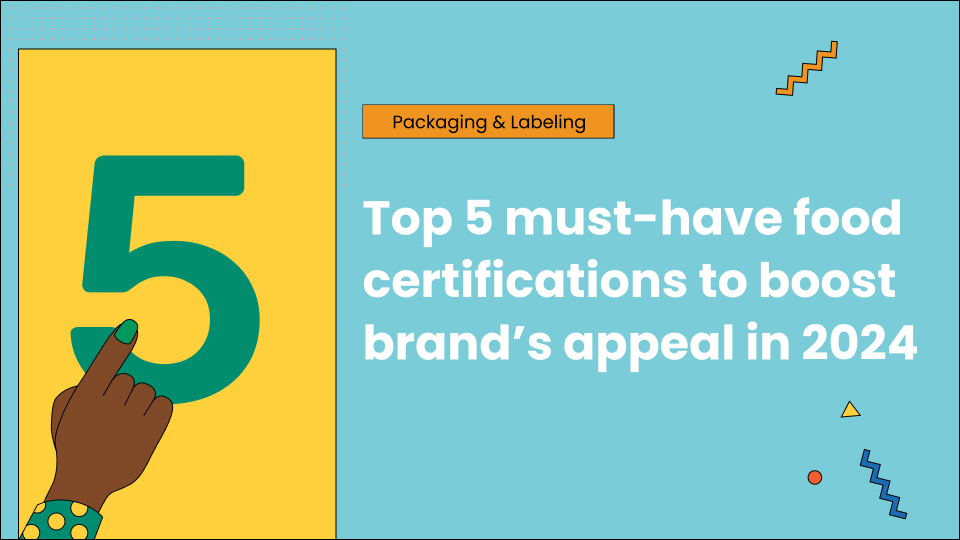Did you know there are about 300,000 food certifications worldwide? That’s an overwhelming number, right? And yet, it’s growing every day! The global food certification market is growing at a CAGR of 10.45% to reach USD 27.34 billion by 2033.
We all know that picking the right food labels isn’t just another task.
It’s a demanding, attention-taking, carefully curated process that can’t go wrong at all. Because one wrong label could lead to some of the worst consequences—we are talking about product recalls, hefty fines, or even lasting damage to your brand’s reputation. It’s the kind of mistake that can set you back years.
GoVisually’s team has compiled a list of the top 5 trendiest food labeling certifications in this guide that can significantly boost your brand’s revenue and open up new market opportunities.
Unlike other blogs, we’re not here to confuse you with technical jargon. We’ll break down what each certification means for your business clearly and straightforwardly.
By the time you’re done reading, you’ll have a clear picture of which certifications matter for your products. You’ll know what it takes to get them and how they’ll impact your bottom line.
Table of Contents
Why do food labeling certifications matter?
For CPG brand owners, labeling certifications aren’t just there to make the packaging look aesthetic—but they hold more significance than that. Labeling certifications are strategic assets that majorly impact brand performance and consumer trust.
Let’s analyze why labeling certification matters point by point here:
1. Builds consumer trust
Thanks to social media and other online resources, consumers are more aware of their eating habits and the products they buy. So now consumers scrutinize the product labels more thoroughly than ever.
In fact, a 2020 study by the Food Industry Association (FMI) shows that 81% of consumers reported that transparency is important to them when shopping for food.
And food labeling certifications directly address this consumer need for transparency.
When a trusted third-party organization verifies your product claims, it adds a layer of credibility that goes beyond mere marketing assertions.
For example, a USDA Organic certification tells consumers that your product has met strict government-regulated standards for organic production.
This external validation acts as a powerful trust signal, effectively saying, “Don’t just take our word for it – an independent expert has verified our claims.” By investing in relevant certifications, CPG brands can bridge the trust gap with consumers.
It is not just an assumption; these claims are factual and backed up by data. Look at the data from FairTrade America’s report here:
- 57% of consumers trust FairTrade Mark
- 73% report they trust MSC claims
- 41% recognize Fair Trade Mark
2. Ensures regulatory compliance for the products
In 2022-2023, the major percentage of food recalls occurred due to undeclared allergens—another label issue. The FDA report says undeclared labels led to
- 47% of food recalls in 2022
- 63% of recalls in 2023
Proper certifications help ensure compliance with regulations, how? Let’s understand here.
Standardized Processes: Certification programs often require brands to implement rigorous quality control and documentation processes. These standardized procedures help ensure that products consistently meet regulatory requirements.
Regular Audits: Most certification programs involve periodic audits by third-party inspectors. These audits serve as additional checkpoints, helping brands identify and correct potential compliance issues before they lead to regulatory violations.
Up-to-date Information: Certification bodies stay updated on regulatory changes and update their standards accordingly. By maintaining certifications, brands indirectly ensure they’re keeping pace with evolving regulations.
Allergen Management: Many certifications, such as Gluten-Free or Allergen-Free certifications, require stringent allergen control measures.
3. Lets you tap into the lucrative markets easily
The food retail industry has become extremely competitive due to changing consumer preferences, eCommerce growth, and other factors. It led to a landscape where standing out on the shelf – physical or digital – is more challenging than ever. So, in this environment, food labeling certifications can be used as a powerful tool for market access and differentiation.
According to the Organic Trade Association, organic food sales in the U.S. reached $61.9 billion in 2020, up 12.4% from the previous year. With this rise in organic products, many retailers have realized the potential of certifications as a gateway to lucrative markets.
Food labeling certifications can also help.
Retailer Requirements: Premium retailers often have strict standards for the products they stock. For instance, Whole Foods Market requires all organic products to be certified by a USDA-accredited certifying agency. Without such certification, a brand’s products may be excluded from these high-value retail spaces, regardless of their quality.
Category Entry: Certifications frequently serve as minimum requirements for entry into specific product categories. In the European Union, products must carry the E.U. organic logo to be sold as “organic.” This makes certification a prerequisite for accessing entire market segments.
E-commerce Visibility: With the growth of online grocery shopping, certifications have become important product attributes for filtering and searching. On platforms like Amazon, customers can filter products by certifications such as “USDA Organic” or “Non-GMO Project Verified.” Products without these certifications may have reduced visibility in these growing digital channels.
Top 5 food labeling certifications
| Category | Certification | Description |
| Organic & Natural | USDA Organic | Informs that only organic farming practices are cultivated, no synthetic pesticides or GMOs are there |
| Non-GMO Project Verified | Guarantees no genetically modified organisms, or bioengineered ingredients are present | |
| Dietary | Gluten-Free Certification | Ensures the absence of gluten for celiac and gluten-sensitive consumers |
| Certified Vegan | No animal products or by-products are present | |
| Sustainability | MSC Certified Sustainable Seafood | Assures of sustainable fishing practices and marine conservation |
1. USDA Organic Certifcation
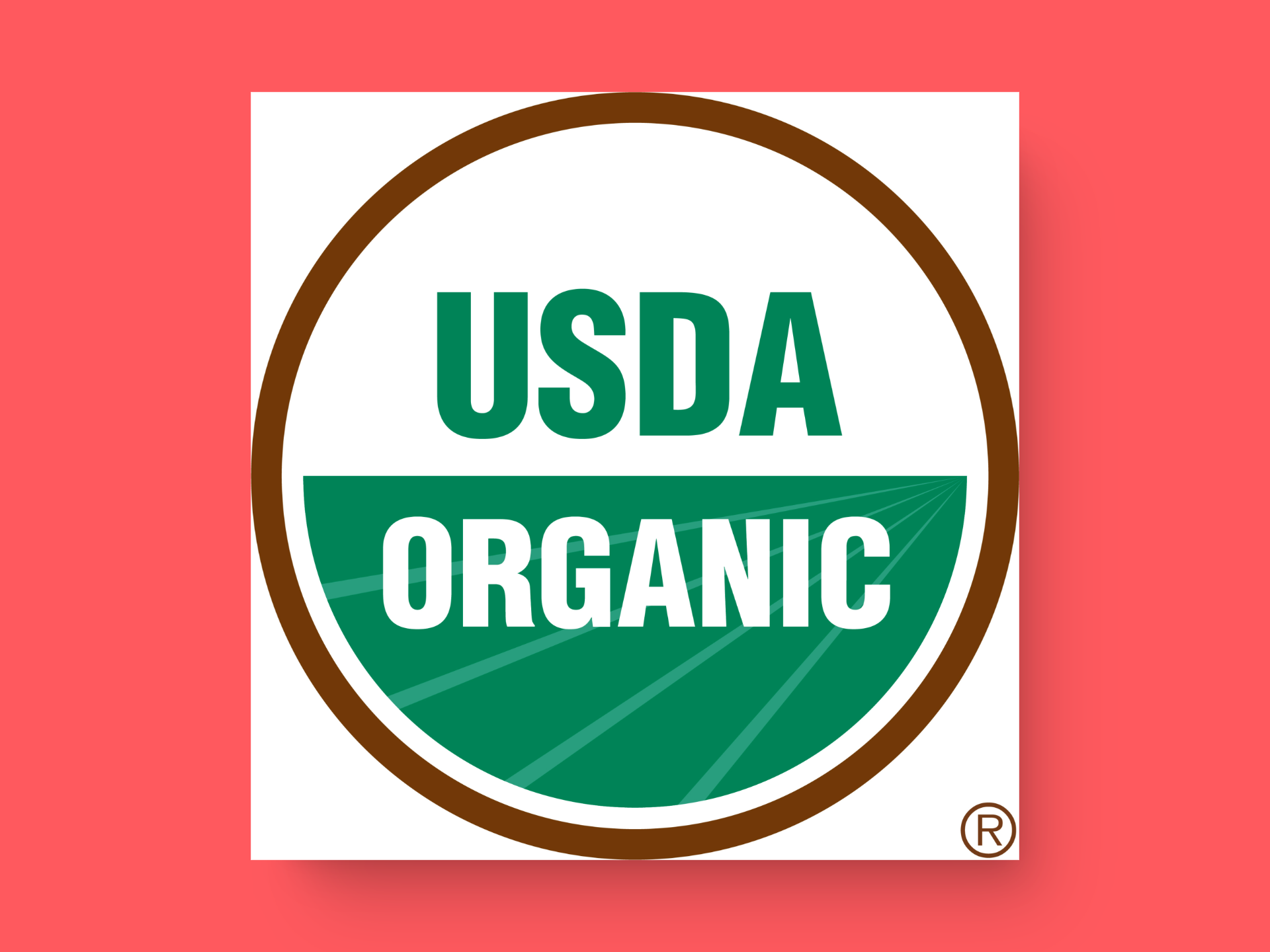
The organic market of the USA expanded to $6 2 billion dollars in 2020, still seeing new high each year. While the metric does indicate opportunity, it also determines the massive competition in the market.
And that’s where investing in USDA organic certification will yield the ROI. The USDA Organic Seal is a powerful tool for CPG brands, offering significant market opportunities in the rapidly growing organic sector.
This certification not only builds consumer trust but also allows for product differentiation in a competitive marketplace. As the only government-backed marketing claim for organic food sold in the U.S., it assures consumers of the product’s organic integrity from farm to table.
This certification covers all the major food products— fresh produce, dairy, and packaged goods. It offers tiered labeling options (100% Organic, Organic, Made with Organic Ingredients), providing flexibility for various product compositions.
For CPG brands, this certification can justify price premiums – organic products often command 7.5-16.4% higher prices than their conventional counterpart. However, ensure compliance with USDA organic regulations.
2. Non-GMO Project Verified
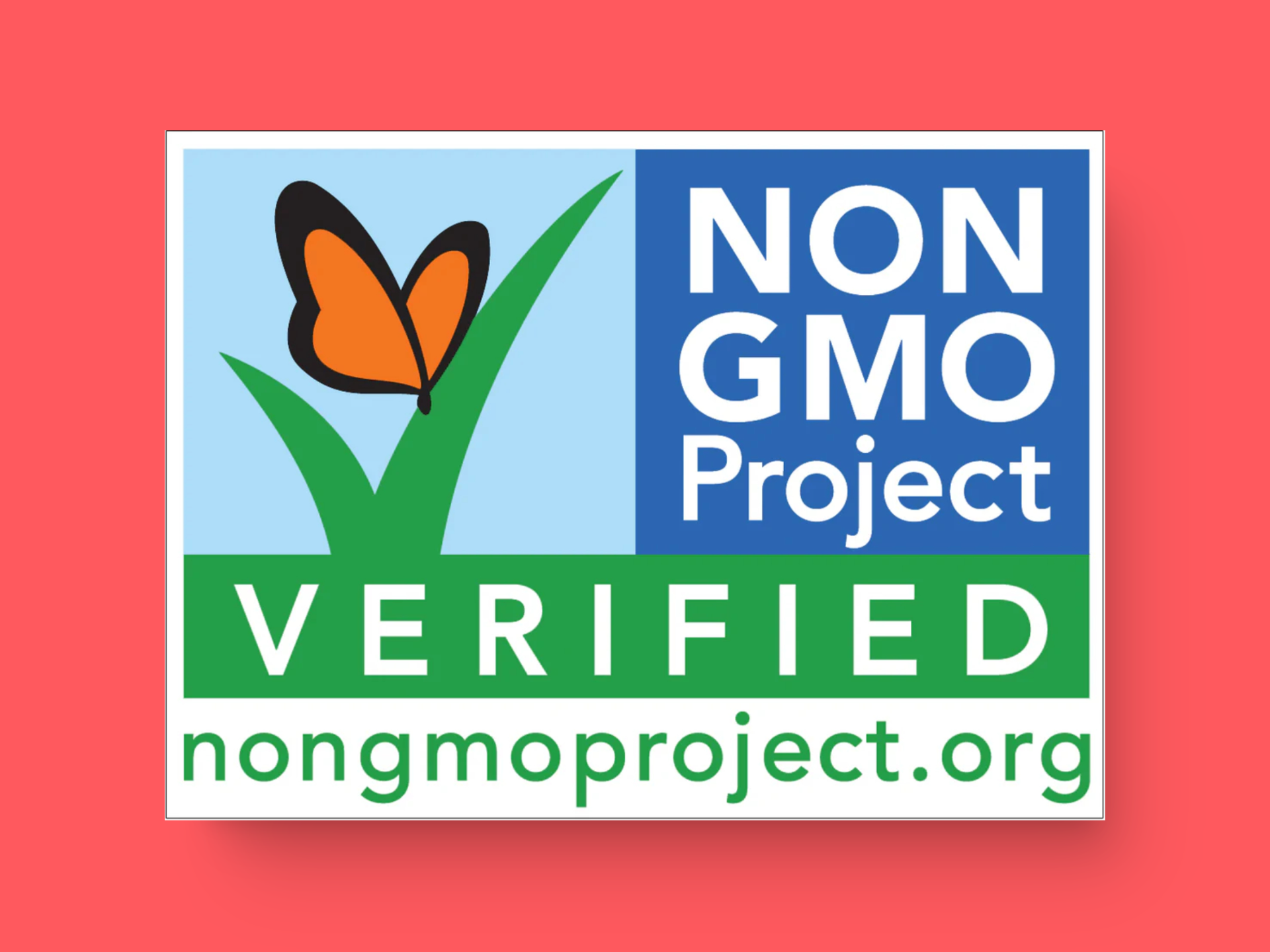
Non-GMO foods are one of the top trends in the U.S. these days. Since there are controversial studies on consuming GMO food products, most consumers choose to go for non-GMO products.
In fact, the food market of non-GMO products reached $1.9 Billion in 2021, and the market is expected to reach $4.0 Billion by 2027. That’s why the Non-GMO Project Verified seal is a powerful asset for CPG brands, as it addresses the growing consumer concerns about genetically modified organisms.
This certification builds consumer trust and differentiates products in a crowded marketplace.
Non-GMO Project Verification applies to a wide range of products, from single-ingredient commodities to complex processed foods. It offers a clear, binary labeling system – products either meet the standard or they don’t, simplifying consumer choice.
While certification involves ongoing testing and compliance costs, it opens doors to a growing consumer base concerned about GMOs. This certification can be a key element in marketing strategies, appealing to health-conscious and environmentally aware consumers.
3. Gluten-Free Certification
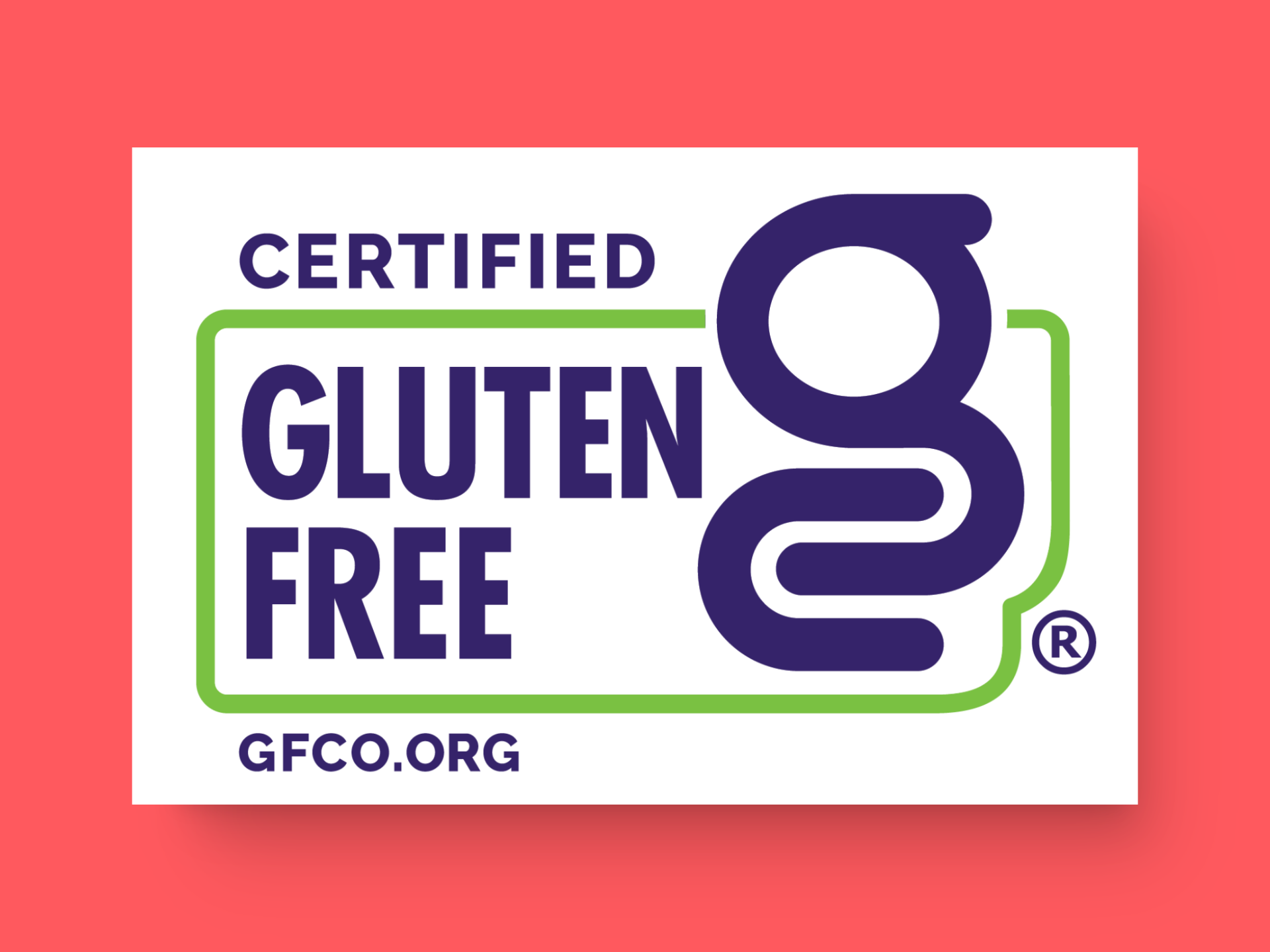
The constant expansion of the Gluten-free product market in the graph (below) emphasizes the importance of investing in Gluten-Free Certification. One-third of Americans follow the G.F. diet for medical reasons, while the rest, 25%, follow it diet by choice.
So, if your brand offers gluten-free products, we recommend you invest in Gluten-Free Certification.
This certification builds trust among celiac and gluten-sensitive consumers and differentiates products in an expanding market segment.
The certificate applies to products, including naturally gluten-free items, specially formulated alternatives for traditionally gluten-containing foods, and others. It offers a clear, binary labeling system that simplifies shopping for gluten-sensitive consumers.
Also, know that the Gluten-Free certification is recognized globally, which can potentially open international market opportunities. While certification involves initial and ongoing costs, the long-term results label can include a dedicated consumer base with specific dietary needs.
4. Certified Vegan
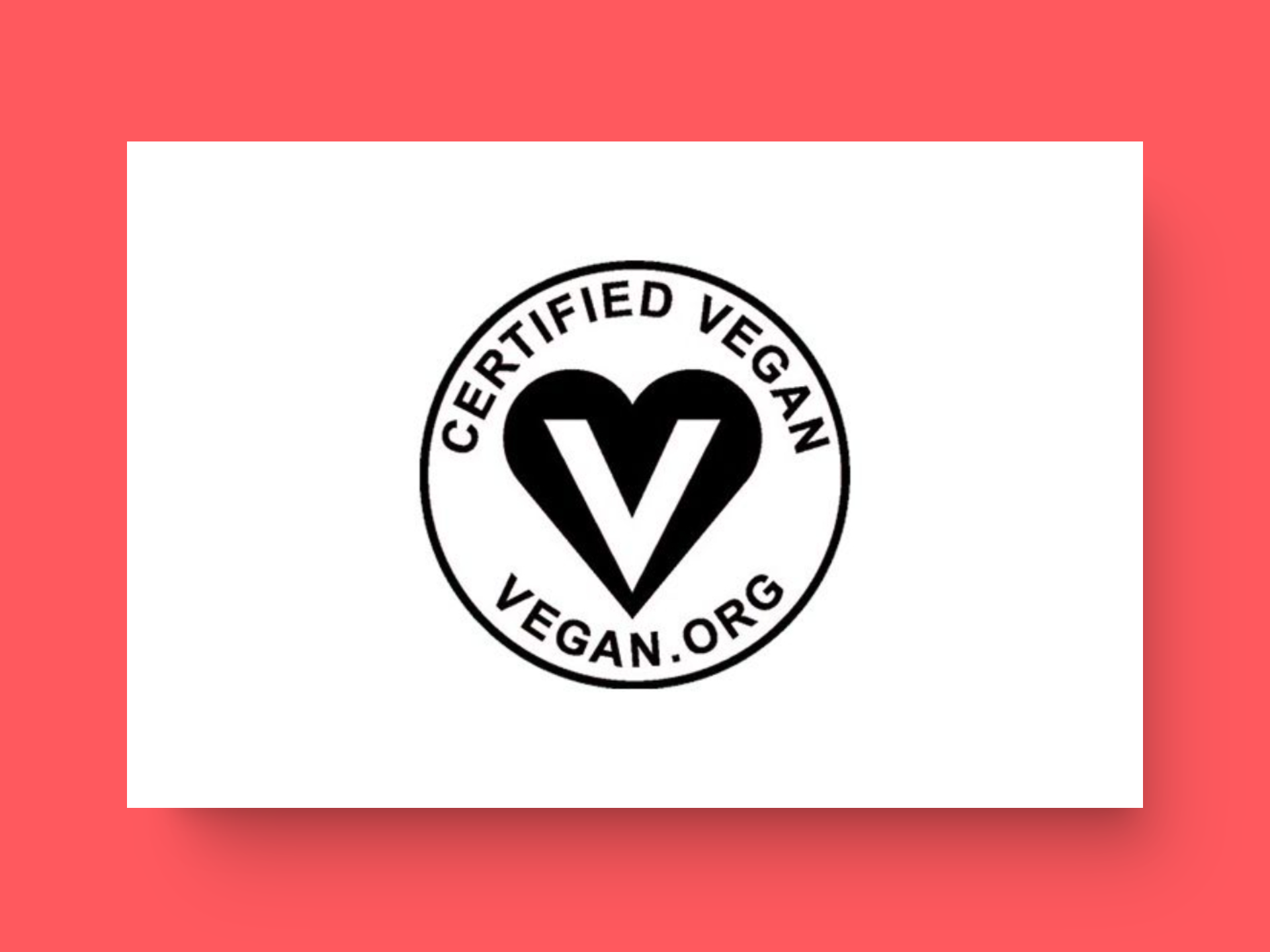
Veganism is a rapidly growing trend globally, driven by health, environmental, and ethical concerns. As more consumers adopt plant-based diets, the demand for certified vegan products has surged.
In fact, the global vegan food market was worth $16.55 billion in 2022 and is expected to grow by 10.7% each year from 2023 to 2030. This makes the Certified Vegan logo a must for CPG brands targeting this expanding market segment.
This certification builds trust among vegan consumers and differentiates products in an increasingly competitive plant-based marketplace.
Certified Vegan applies to a wide range of products, from food and beverages to cosmetics and clothing. It offers a clear, binary labeling system – products either meet the strict vegan standards or they don’t, simplifying shopping for vegan consumers.
However, veganism is a very niche target market consisting of only 230 million people. So before you invest in the market, you should conduct a thorough research on it.
For example, this one report from Viva compiles and compares the stats of 2-3 surveys to provide detailed and comparative data.
5. Fair Trade Certification
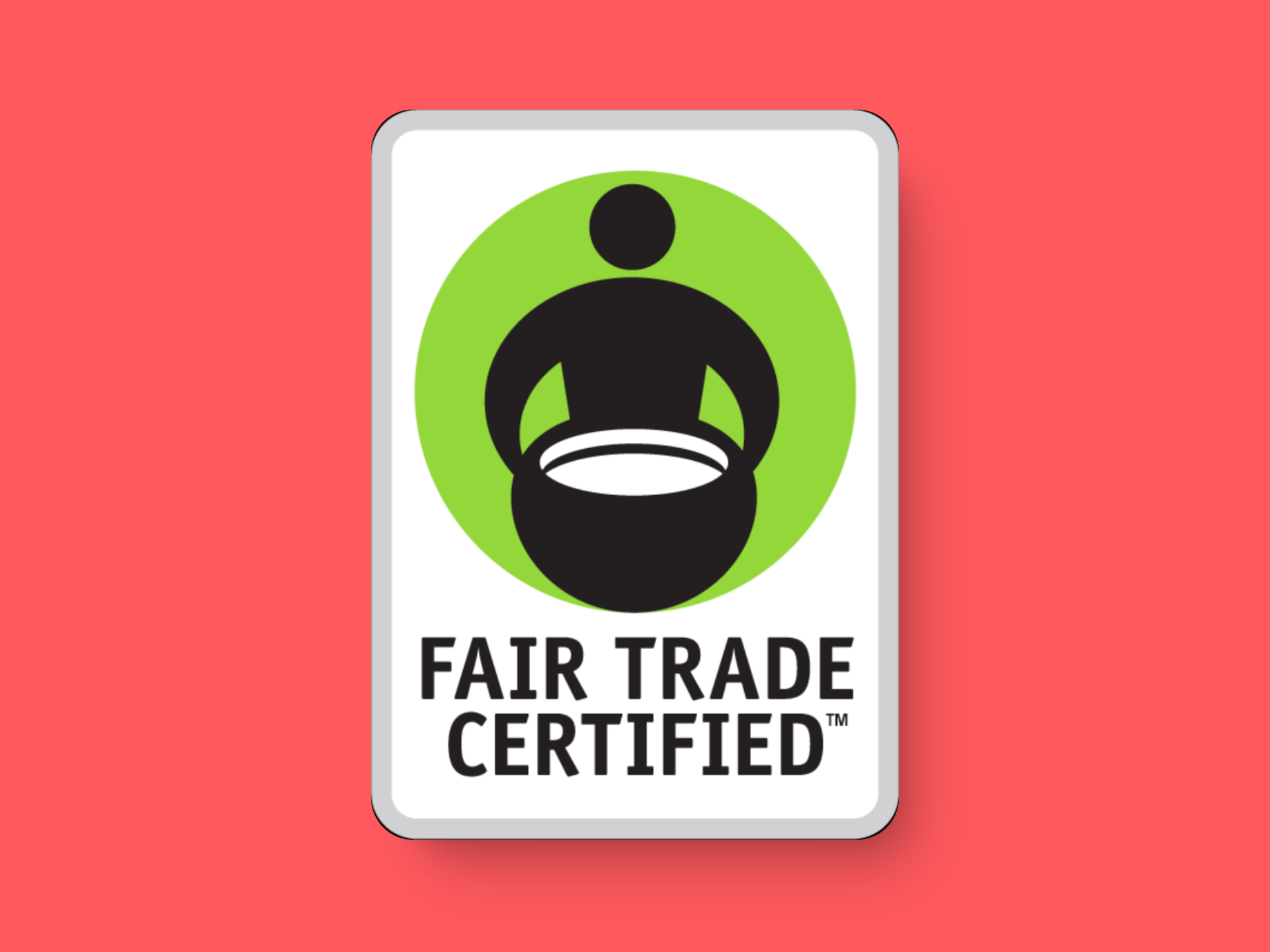
Fair Trade is a global movement aimed at creating a more equitable and sustainable trade system. It’s based on the principle that products we buy and sell daily are directly connected to the livelihoods of others around the world.
This certificate is intended for consumers who care about fair labor conditions, environmental impact, and ethical purchasing.
So, by adding this certificate to your label, you can appeal to these consumers’ sentiments and increase sales for your CPG brand.
If we look at figures and datas, global fair Trade is a small but growing market with annual sales of 9.5 billion U.S. dollars in 2017.
If you have a business that
- Prioritizes farmers and workers in supply chains
- Demonstrates commitment to social responsibility
- Appeals to a growing base of conscious consumers
And If your target audience includes
- Ethical shopper
- environmentally conscious consumers
- Health-conscious consumers
- Global-minded shoppers
We recommend you get the Fair Trade Certification, as it has the potential to make your brand stand out on the shelves. It’s going to connect your brand messaging to your target audience, improving the brand reputation and better recognition market.
Fair Trade Certification applies to a range of products, from coffee and cocoa to textiles and handicrafts. It offers a clear, recognizable label that simplifies shopping for ethically-minded consumers.
What’s next?
By now you have a gained a thorough understanding on labels and how they might fit for your CPG brands. So what’s next now?
Ensuring label compliance.
Adding certificates to your existing label can cause more complexities in label review process, leading to longer review periods, and then again extending the decided budget. So what’s the solution?
Experts suggest using AI-powered label review tools like GoVisually, if you want to bring down 1-6 weeks of standard label reviewing periods to 2 minutes. Sounds unrealistic? Use our free label scoreboard to experience the magic of our AI-powered label compliance tool.
GoVisually’s advanced AI-powered tool conducts thorough compliance checks for three major regulatory bodies—FDA, FSA, CFIA. The regulatory check covers
- restricted and required keyword checks
- claim verification
- “no added sugar” claim consistency
- allergen detection
- organic claim validation, etc.
Read here to read know how GoVisually is automating label compliance with its industry leader AI tool.
Disclaimer: While our AI compliance checker is highly accurate, it should be used as a tool to aid human expertise, not replace it. Always consult with qualified professionals for final compliance verification.
